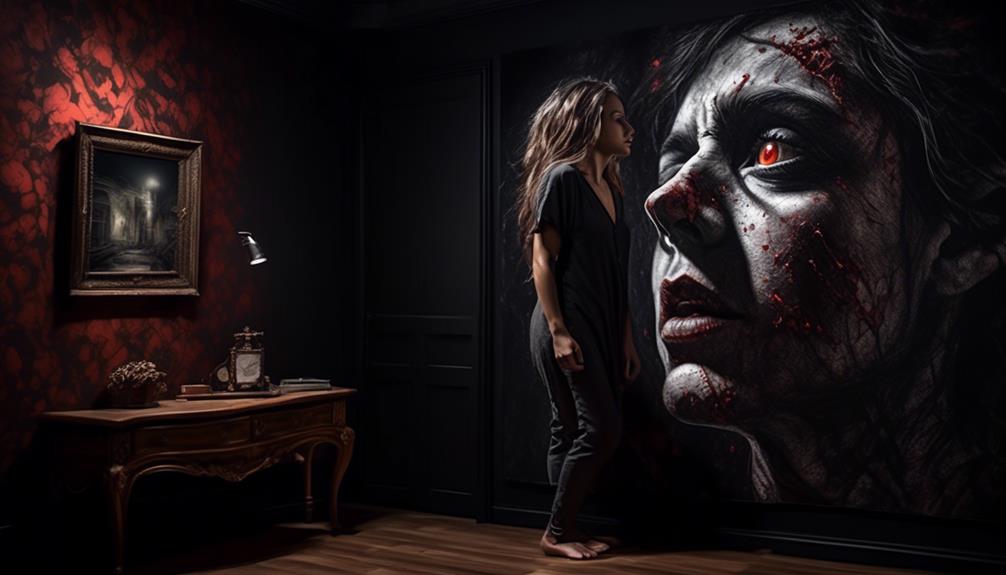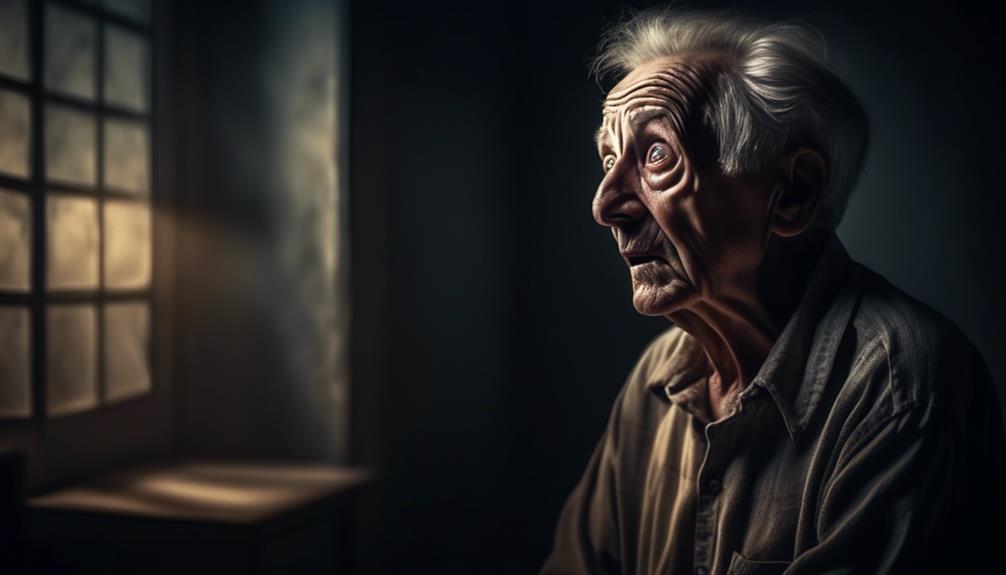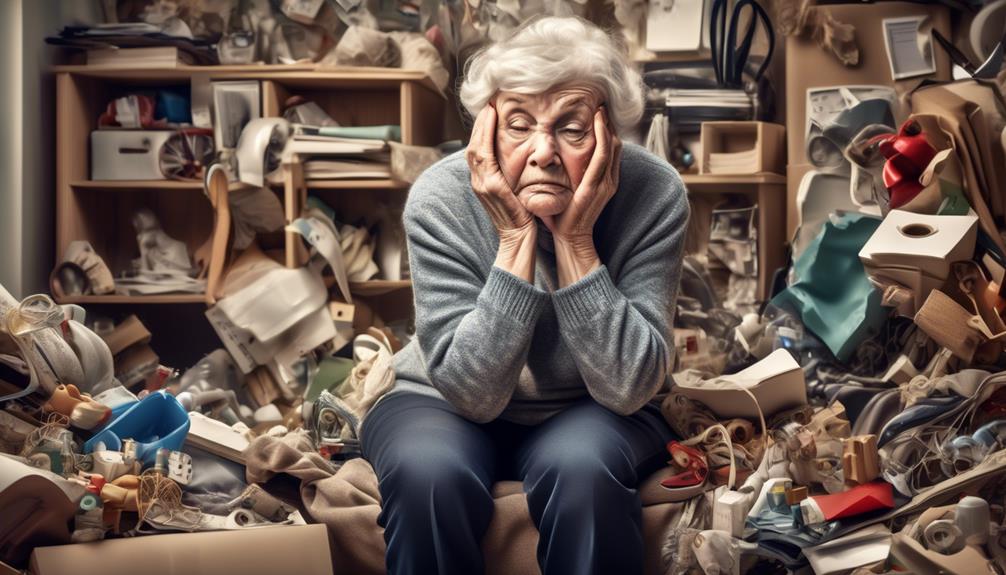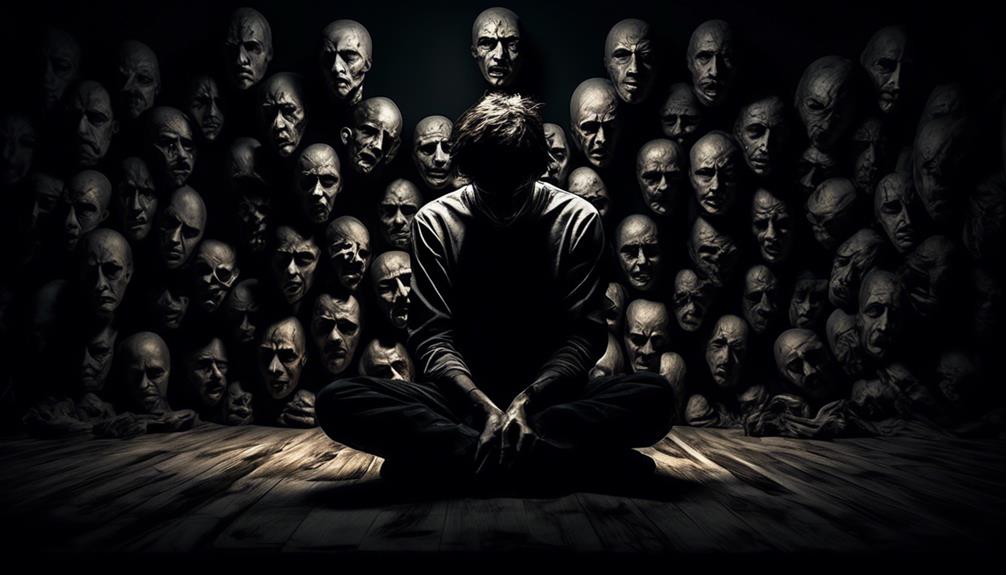Have you ever considered how a sleepless night can make you see things that aren’t real? It’s not just the act of sleeping, but also the lack of it, that can create intriguing illusions in your mind.
From subtle shadows dancing in the corner of our eye to full-blown vivid illusions, the impact of sleep deprivation on our perception is a subject worth exploring further.
Key Takeaways
- Sleep deprivation increases susceptibility to hallucinations.
- Lack of sleep compromises cognitive function and distorts perception.
- Various types of hallucinatory experiences can occur due to sleep deprivation.
- Prioritizing good sleep hygiene reduces the risk of sleep-induced hallucinations.
The Science of Sleep Deprivation and Hallucinations
Sleep deprivation can significantly impact the occurrence of hallucinations during sleep, highlighting the intricate relationship between lack of sleep and altered perceptual experiences.
When we experience total sleep deprivation or chronic sleep insufficiency, our mental faculties can be greatly affected. The brain's cognitive function is compromised, leading to a range of symptoms that may include hallucinations.
This lack of sleep disrupts our normal sleep patterns and can cause imbalances in crucial brain chemicals, contributing to the onset of hallucinations during sleep. Individuals with underlying sleep disorders, such as narcolepsy or sleep apnea, are particularly susceptible to experiencing hallucinations due to their disrupted sleep cycles.
It's essential to address the root cause of sleep deprivation, whether it be poor sleep hygiene or a diagnosed sleep disorder, to alleviate the occurrence of these unsettling hallucinations.
Effects of Sleep Deprivation on Perception
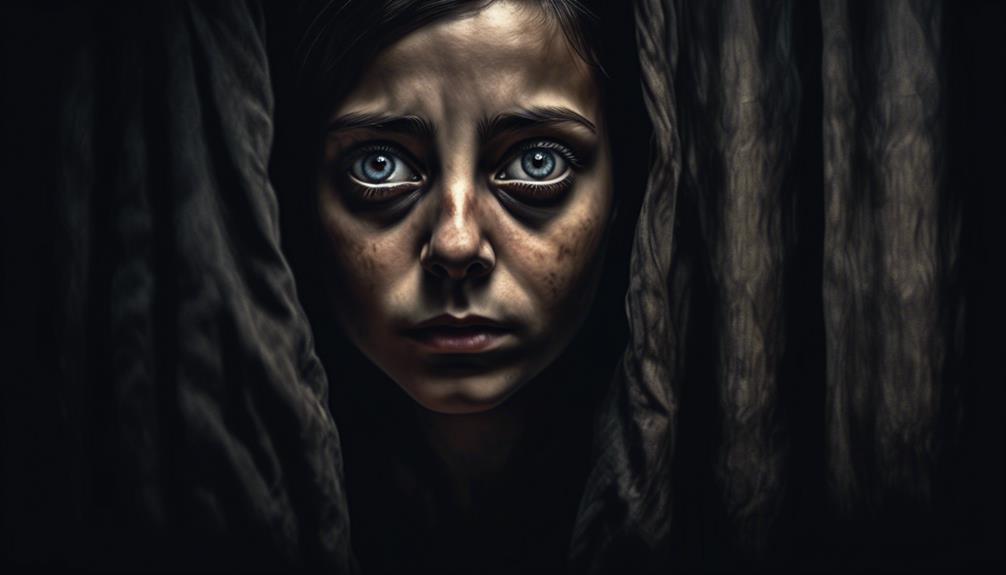
During periods of sleep deprivation, individuals may experience significant alterations in their perception. Being sleep deprived can lead to a range of symptoms affecting one's ability to perceive reality accurately.
Research shows that visual hallucinations are common among those lacking sufficient hours of sleep. These hallucinations can manifest as seeing objects, people, or shapes that aren't actually present.
The effects of sleep deprivation on perception can be profound, causing individuals to question the reality of what they're experiencing. Neurologists and sleep medicine specialists confirm that prolonged sleep deprivation can result in distorted perceptions of the environment, leading to difficulties in distinguishing between what's real and what's not.
It's essential to recognize that the effect of sleep deprivation on perception can contribute to mental health problems if not addressed promptly. Seeking professional help to manage insomnia causes and ensuring an adequate amount of rest is crucial in preventing the perception of something that isn't real.
Hallucinatory Experiences From Lack of Sleep
Experiencing the effects of sleep deprivation on perception can lead individuals to encounter various hallucinatory phenomena resulting from a lack of adequate rest. Humans hallucinate on little sleep, and going days without sleep can exacerbate these hallucinations. Sleep problems, such as poor sleep quality, can be a significant side effect of sleep deprivation, causing hallucinations to happen more frequently.
Common symptoms of hallucinatory experiences from lack of sleep include:
- Hypnic jerks: Involuntary muscle spasms during the transition between wakefulness and sleep.
- Hypnagogic hallucinations: Vivid visual or auditory sensations experienced when falling asleep.
- Hypnopompic hallucinations: Similar to hypnagogic hallucinations but occur upon waking up.
- Sleep-related hallucinations: Can be triggered by factors like alcohol or drug use, chronic insomnia, certain medications, anxiety, or stress.
Understanding how sleep deprivation affects the mind and body is crucial in managing and preventing the occurrence of hallucinatory experiences related to inadequate rest.
Risks of Not Sleeping and Hallucinations
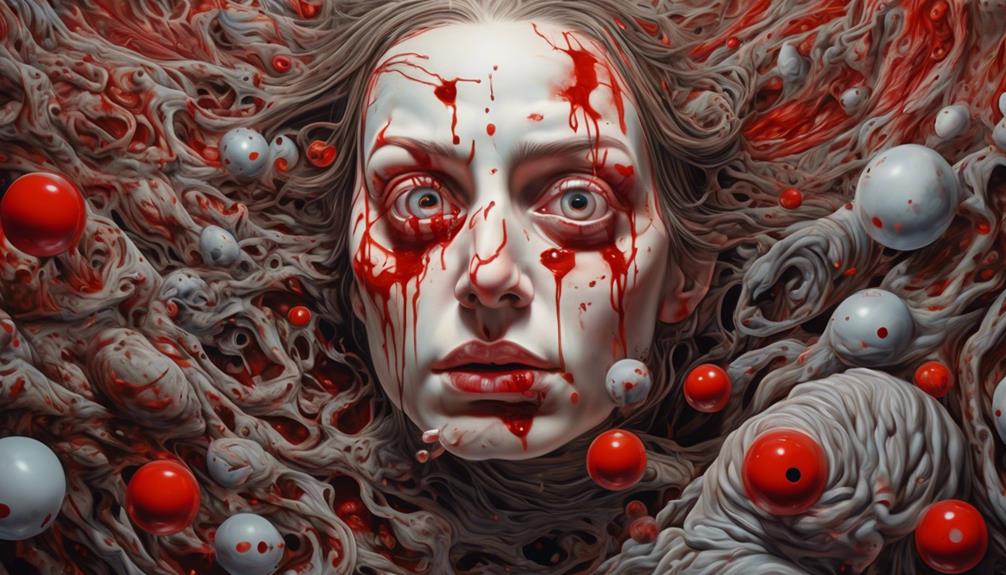
Our research underscores the critical link between inadequate sleep and an increased susceptibility to hallucinations. Studies show that sleep deprivation can cause hallucinations to occur, both during the transition into sleep (hypnagogic hallucinations) and upon waking (hypnopompic hallucinations). It's crucial to prioritize getting a good night's sleep to reduce the risk of experiencing these disturbing phenomena.
Improving your sleep hygiene, such as maintaining a consistent sleep schedule and creating a relaxing bedtime routine, can help ensure you get enough sleep each night.
While sleep hallucinations are generally not considered dangerous, they can impact your overall sleep quality and may be indicative of underlying health issues. For individuals with serious mental conditions like schizophrenia, hallucinations can be more frequent and intense. It's essential for these individuals to work closely with healthcare professionals to manage their sleep patterns and overall well-being effectively.
Coping With Sleep-Induced Hallucinations
Hallucinations during sleep disturbances, whether they manifest during the process of falling asleep or upon waking, can be effectively managed through strategic coping mechanisms. When experiencing hallucinations due to sleep disturbances, it's crucial to address the root causes and implement helpful strategies.
To cope with sleep-induced hallucinations effectively, consider the following:
- Prioritize Sleep: Getting more sleep and improving sleep quality can significantly reduce the likelihood of experiencing hallucinations.
- Consult a Specialist: Seeking guidance from a board-certified neurologist and sleep specialist can provide valuable insights and personalized recommendations.
- Practice Relaxation Techniques: Managing stress levels through relaxation methods like deep breathing or meditation can help alleviate sleep-related hallucinations.
- Establish Good Sleep Hygiene: Creating a consistent bedtime routine, maintaining a comfortable sleep environment, and avoiding stimulants before bed can promote better sleep and reduce the incidence of hallucinations.
Frequently Asked Questions
Can Not Sleeping Cause Hallucinations?
Yes, not sleeping can indeed cause hallucinations. Lack of sleep disrupts the brain's normal functioning, leading to sensory distortions and hallucinations. These hallucinations can be visual, auditory, or tactile in nature and are often a sign that the brain is struggling to differentiate between wakefulness and sleep.
It's crucial to prioritize healthy sleep habits to prevent these unsettling experiences and safeguard overall well-being.
How Long Can You Go Without Sleep Before Hallucinating?
We've looked into the duration one can go without sleep before experiencing hallucinations. This varies among individuals, but typically, hallucinations may start to occur after around 48-72 hours of sleep deprivation.
Factors like overall health, stress levels, and prior sleep patterns can influence this threshold. If hallucinations begin, it's crucial to prioritize rest and seek medical advice if they persist.
What Are the Side Effects of Lack of Sleep?
Lack of sleep can lead to a range of side effects, including cognitive impairment, mood disturbances, weakened immune system, increased risk of chronic conditions like diabetes and heart disease, and even weight gain.
It can also affect our ability to concentrate, make decisions, and regulate emotions.
Prioritizing quality sleep is essential for overall well-being and functioning optimally in daily activities.
What Are the 5 Stages of Sleep Deprivation?
In the realm of sleep deprivation, we traverse five distinct stages.
Mild sleep deprivation initiates with difficulty concentrating and slight mood changes.
Progressing to moderate deprivation, we encounter increased mood swings, reduced cognitive function, and diminished alertness.
Severe deprivation exacerbates these symptoms, introducing impaired memory, poor decision-making, and heightened accident risk.
Chronic deprivation poses serious health risks like weakened immunity and weight gain.
Total deprivation, the final frontier, may lead to hallucinations, psychosis, and, in extreme cases, death.
Conclusion
In conclusion, sleep deprivation can indeed lead to hallucinations, affecting our perception and cognitive functioning. Lack of sleep disrupts the normal activity of our brain, resulting in various types of hallucinations.
It's crucial to prioritize good sleep hygiene to prevent these hallucinatory experiences. Remember, adequate rest is essential for our overall well-being and mental health.
So let's prioritize our sleep and take care of our minds.
